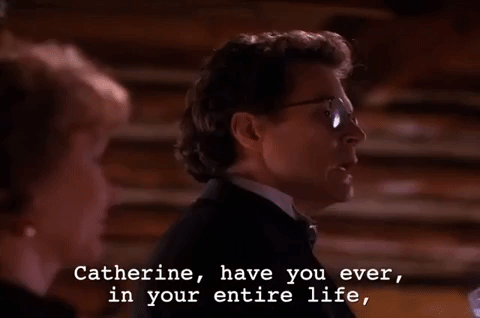Why CEOs Struggle as Podcast Guests (And How to Shine Instead)
Picture this: you’re listening to your favorite business podcast. The host brings on a CEO whose company you actually know. You’re ready to hear juicy insights on leadership, strategy, maybe even a war story or two. Instead? You get 45 minutes of someone who sounds like they’re reading last quarter’s earnings report. Snooze.
Here's the thing: it’s not because CEOs don’t have great stories. They’ve built empires, put out fires, and made calls that would keep the rest of us staring at the ceiling at 3 a.m. The problem is this: the skills that make you brilliant in a boardroom can make you a total buzzkill on a podcast.
The flip side? When CEOs actually nail podcast guesting, it’s electric. Suddenly they’re a storyteller with influence, not just “a leader”. They’re memorable, binge-worthy, quotable. The kind of guest who makes listeners say, “Damn, I’d follow that person anywhere.”
So if you’re a CEO (or working with one) and podcasts are on your radar, this isn’t about changing who you are. It’s about translating your leadership superpowers into a format that actually lands with real humans.
Ready to turn your next podcast appearance into your secret weapon? Let’s dig into where executive communication goes sideways and how to crush it instead.
1. The Jargon Trap
You’ve mastered the language of strategy. You can throw around “synergies,” “optimization,” “cross-functional alignment” and “low hanging fruit” like confetti. That’s great in a boardroom. But here’s the rub: podcast listeners aren’t board members.
They’re driving to work. Walking the dog. Folding laundry. And when you drop into corporate-speak, their brain checks out…and fast.
The real win is translating your big ideas into everyday language. Instead of, “We’re leveraging vertical integration to maximize operational efficiency,” try: “We decided to bring more of the process in-house so we could move faster and deliver better quality.” Same insight, zero buzzword fatigue.
The Fix: Before your next interview, explain your talking points to someone outside your industry. If they get it instantly, you’re golden. If not, keep simplifying until they nod. (We actually ask our clients to try this on their kids—because if a 10-year-old can’t follow your “synergies and vertical integration” spiel, neither will a podcast audience.)
2. The Sales Pitch Syndrome
Here’s what most podcast hosts admit to us behind the scenes: nothing tanks an interview faster than turning it into a product pitch.
Listeners aren’t pressing play to hear about “your revolutionary platform” or “exciting new feature.” They want to hear how you think, what you learned from failure and what leadership feels like when things get messy.
When every response circles back to “our exciting new feature” or “our revolutionary platform,” it feels like a commercial break nobody asked for.
Here’s the twist: the CEOs who don’t pitch are often the ones who generate the most interest in their companies. Share the product launch that almost sank the business or the customer story that forced you to rethink everything. Vulnerability and real talk build more trust than any slick pitch ever could.
The Fix: Focus on storytelling, not selling. Share the story of the scrappy early days, the messy middle where things almost fell apart, or the lessons you learned from a failed launch. Ironically, these vulnerable and authentic moments often do more to build interest in your company than a polished pitch ever could.
Remember: podcasts are an opportunity to build trust. If you bring value first like insights, lessons, humor, humanity, listeners will naturally want to learn more about your work.
3. Staying In the Clouds
CEOs are visionaries. They’re used to zooming out, painting the big picture, and inspiring people with “the future of the industry.” That’s a powerful and rare skill,but when it’s the only thing you bring to a podcast, it can feel abstract and untethered.
Listeners don’t just want the 30,000-foot view. They want the messy, human details: the sleepless night before a funding round, the risky decision that almost didn’t work, the early customer who changed everything.
The Fix: Balance vision with vulnerability. If you’re talking about where your industry is headed, weave in a story about the day you realized things had to change. If you’re explaining your company’s growth, share one of the surprising challenges that came with scaling.
Details stick. They turn concepts into moments people can actually picture and repeat later to a friend.
4. The Energy Drain
Here’s the trap most CEOs don’t even see coming: the communication style that makes you a rockstar in the boardroom—measured, controlled, polished to perfection—can make you sound like Ambien on a podcast.
In high-stakes meetings, that calm, steady presence screams competence. But on audio? With no body language, no sharp suit, no fancy conference room to back you up? It can come across like you’re half-asleep while talking about your own company.
The best CEO podcast guests know that audio is intimate. Your voice is literally in someone’s earbuds while they’re jogging, commuting, or sipping their morning coffee. Listeners can feel if you’re excited, inspired, or just phoning it in.
The Fix: Match your energy to your content, and turn up the dial. If something was genuinely exciting, sound excited. If a decision was terrifying, let some of that intensity through. No need to change your natural personality; just be genuine and remember that this medium rewards passion.
The Bottom Line: The CEO Podcast Playbook
What separates a meh CEO guest from a great one? It’s not about charisma, fancy soundbites, or being a natural entertainer. It’s about being intentional in how you show up.
Before you hit record:
Prep 3–4 stories that reveal how you think, not just what you’ve done
Translate your insights into plain English
Be willing to talk about failures, not just wins
Think about what genuinely excites you about your work—and be ready to let that show
During the interview:
Follow the host’s lead, but don’t be afraid of detours
When you feel yourself going “corporate,” stop and reframe
Share the messy middle, not just the polished ending
Let your enthusiasm and personality shine. Passion is contagious.
The CEOs who figure this out don’t just “sound good” on podcasts. They connect and build trust, and that trust turns into customers, opportunities, and relationships that no press release could ever buy.
Remember that at the end of the day, podcasting isn’t about being perfect. It’s about being real. And when you get that right, people will listen every time.




